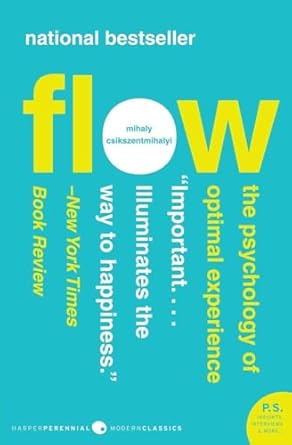
Enjoyment and Quality of Life
Achieving a state of flow depends on immersing oneself in the experience rather than focusing on performance outcomes. When too much emphasis is placed on how well we perform, we lose connection with the activity’s essence.
To enjoy mental activities, the following conditions — similar to those that make physical activities enjoyable — should be met:
- When people have a chance of completing a confronted task.
- Ability to concentrate on what they’re doing.
- Task has clear goals.
- Immediate feedback from the task.
- Ability to remove awareness of worries and frustrations of everyday life.
- Allow people to exercise a sense of control over their actions.
- Concern for the self disappears.
In some creative activities, where goals are not clearly set in advance, a person must develop a strong personal sense of what he/she intends to do.
Day Dreaming
Day dreaming helps individuals cope emotionally with unpleasant realities by imagining compensatory scenarios, like visualising justice against someone who has caused harm.
Additionally, it allows both children and adults to mentally rehearse situations, adopt optimal strategies, consider alternative options, and anticipate unforeseen consequences — all of which enhance the complexity of their consciousness.
Writing
Writing isn’t just about passing on information; it’s about creating it.
It gives our minds a disciplined way to express themselves.
By writing, we capture events and experiences so we can easily revisit and relive them later. It’s a tool to analyse and understand what we’ve been through — a conversation with ourselves that brings order to our thoughts.
Remembering facts is pointless unless they form patterns and reveal connections.
The simplest way to create order is by naming things. After names come numbers and concepts, followed by basic rules for combining them in predictable ways.
Developing Proficiency
- Cultivate skills in a specific area such as mathematics, music, or language.
Having competence allows for deeper interaction and enjoyment of the activity.
Defining Rules
- Establish guidelines that govern the activity to provide structure.
- Rules help in understanding what is permissible and make the activity more engaging.
Defining Goals
- Identify clear, achievable goals to work toward.
- Goals give purpose to the activity, motivating continued effort and focus.
Gaining Feedback
- Implement ways to get feedback on performance such as tests, quizzes, or critiques.
- Feedback helps in recognising areas for improvement and tracking progress.
Seeking Challenges
- Engage in tasks that are neither too easy nor too difficult.
- Matching challenges to skill levels prevents boredom and avoids frustration.
Culture
Cultures are adaptive systems that help us manage chaos by reducing randomness in our experiences.
Like feathers for birds or fur for mammals, they provide norms, goals, and beliefs that guide us through life’s challenges.
While they limit possibilities by focusing our attention on specific goals and means, this focus enables effortless action within self-created boundaries.
Complexity is a function of how well the information in a person’s consciousness is differentiated and integrated.